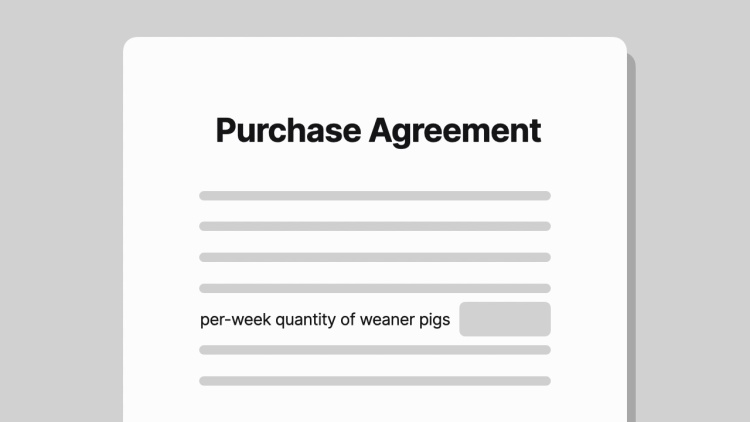Lohman v. Wagner
Maryland Court of Special Appeals
862 A.2d 1042 (2004)

- Written by Rich Walter, JD
Facts
John Wagner (defendant) agreed in principle to buy young weaner pigs from Charles Lohman (plaintiff). Lohman needed a draft contract he could show his banker to arrange financing. Wagner drew up a draft contract, which listed the services, such as housing and feeding, that Lohman would provide to prepare the pigs for sale at a price of $28 per pig. The draft left a blank line for the number of pigs Lohman would deliver each week. Wagner signed the draft and sent it to Lohman. Lohman completed the draft by writing 300 on the blank line, took the completed draft to his bank, and got his loan. However, Lohman never copied Wagner on the completed draft. Nevertheless, Lohman started delivering 300 pigs each week, for which Wagner paid $28 each. A few months later, Wagner told Lohman that the price needed to drop to $18 per pig. Lohman sued to enforce the higher price. The trial court ruled that (1) the Uniform Commercial Code (UCC) applied to the case, (2) the UCC included farm animals in its definition of goods, and (3) the lack of an agreed-upon quantity term made the purported contract unenforceable under the UCC. Lohman appealed to the Maryland Court of Special Appeals. On appeal, Lohman contended that the contract was for the provision of services rather than the sale of goods and that, therefore, the UCC did not apply to the contract.
Rule of Law
Issue
Holding and Reasoning (Meredith, J.)
What to do next…
Here's why 907,000 law students have relied on our case briefs:
- Written by law professors and practitioners, not other law students. 47,100 briefs, keyed to 996 casebooks. Top-notch customer support.
- The right amount of information, includes the facts, issues, rule of law, holding and reasoning, and any concurrences and dissents.
- Access in your classes, works on your mobile and tablet. Massive library of related video lessons and high quality multiple-choice questions.
- Easy to use, uniform format for every case brief. Written in plain English, not in legalese. Our briefs summarize and simplify; they don’t just repeat the court’s language.





